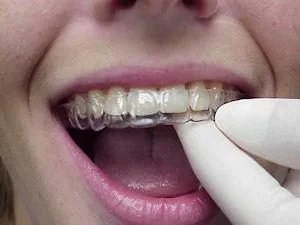How to Tell If Your Retainer Doesn’t Fit (And What to Do About It)
After your orthodontic treatment ends, your retainer becomes your best friend. It’s what keeps your teeth from shifting back after all the time, effort, and care you’ve put into your smile. But how do you know if your retainer is doing its job—or if something’s wrong?
In this post, we’ll answer some of the most common questions we get at Virginia Braces, including:
How to tell if your retainer is loose
How to know if your retainers don’t fit anymore
What to do if your retainer doesn’t fit right
Let’s break it down.
How to Tell If Your Retainer Is Loose
If your retainer is not fitting snug against your teeth, it may be loose. Here are a few signs to watch for:
You can easily wiggle it with your tongue
It falls out when you talk or sleep
You feel like it “clicks” in and out with little resistance
There are visible gaps between the retainer and your teeth
A loose retainer may not provide the pressure needed to maintain alignment, which can lead to your teeth shifting over time.
How to Know If Your Retainers Don’t Fit
Sometimes, it’s not that your retainer is too loose—it might be too tight or completely off. This usually happens if:
You’ve gone several days or weeks without wearing it
Your teeth have started to shift
You feel pressure or discomfort when trying to wear it
It won’t sit all the way down on your teeth, no matter how hard you press
Retainers should feel snug, but not painful. If it doesn’t fit comfortably and can’t be seated fully, it likely means your teeth have moved.
What to Do If Your Retainer Doesn’t Fit
Don’t try to force it. Forcing a retainer that doesn’t fit can damage the retainer - or worse, your teeth.
Here’s what we recommend:
Call us as soon as possible. At Virginia Braces, we can assess the fit and recommend next steps.
Bring your retainer to your appointment, even if it doesn’t fit. This helps us determine whether it can be adjusted or if you need a new one.
Wear it if it fits partially but not fully, and it’s not causing pain. Sometimes even partial wear can help minimize further shifting until your appointment.
How to Prevent Retainer Fit Issues
Wear it consistently, especially right after treatment.
Store it safely in its case when not in use.
Clean it daily to avoid buildup that can alter its shape.
Keep up with your follow-up visits to ensure everything is on track.
Final Thoughts
If you’re wondering whether your retainer is still doing its job, you’re not alone. Whether it’s feeling loose or just doesn’t fit anymore, it’s always better to address the issue sooner than later. A quick call to your orthodontist could save you from restarting treatment altogether.
We’re here to help. Virginia Braces offers quick appointments and expert retainer checks to keep your smile where it belongs - right where you left it.
📞 Need help with your retainer? Contact Virginia Braces today to schedule a check-up.


